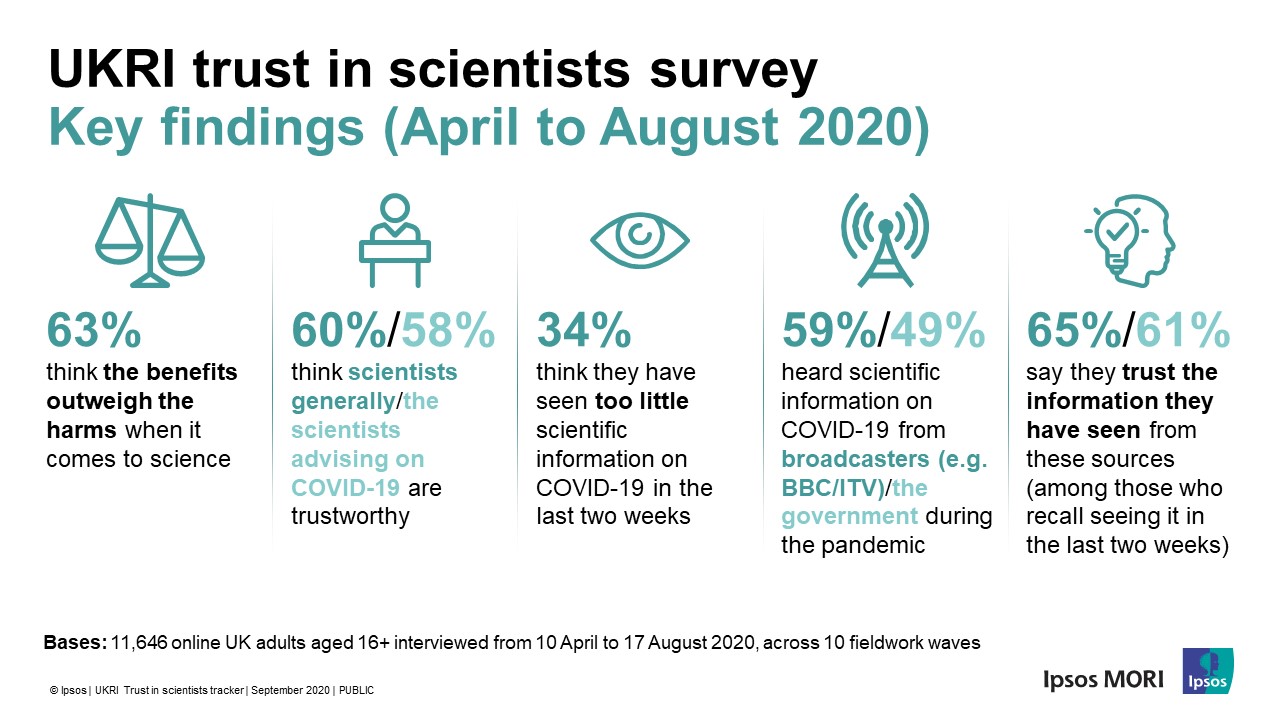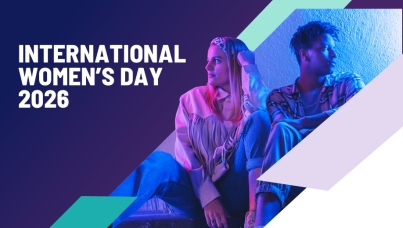UKRI Research: How has COVID-19 affected trust in scientists?
UK Research and Innovation commissioned Ipsos to monitor public opinion towards science, scientists and scientific information during the COVID-19 pandemic.
UK Research and Innovation commissioned Ipsos to monitor public opinion towards science, scientists and scientific information during the COVID-19 pandemic. This involved a fortnightly online survey from mid-April to late August 2020 with UK adults aged 16+ (c.1,100 per wave, for 10 waves). The surveys explored attitudes to science, trust in scientists and science communication during the COVID-19 pandemic.
Positivity towards science
- The results show that the UK public have a positive disposition towards science and scientists, and this carries through to the role of scientists in dealing with the COVID-19 pandemic. Over six in ten (63%) said the benefits of science to the UK are greater than any harmful effects. Three in five (60%) considered scientists in general to be trustworthy.
Science communication
- There was an appetite for scientific information on COVID-19. Over twice as many people thought they saw and heard too little scientific information about it (34%) than thought there was too much (13%), and around nine in ten (89%) said they saw this kind of information over the course of this survey series.
- Moreover, this desire for more information has grown over the course of this series, and since June it has stayed at around four in ten of the public, despite other issues outside of COVID-19 taking over the news agenda. However, the less affluent and non-graduates tend once again to be more disengaged.
- This series also helps us understand where people receive scientific information on COVID-19. Major broadcasters such as the BBC, ITV, Channel 4 and Sky have consistently been the most common source of such information (for 59%). They are also among the most trusted sources (by 65% of those who recall getting scientific information from these channels), alongside scientific journals and science websites (69%).
- Nevertheless, the importance of social media, word-of-mouth and WhatsApp communications among younger audiences should not be underestimated – those aged 16-24 were just as likely to recall seeing or hearing scientific information on COVID-19 on social media (44%) as through traditional broadcast media (45%).
Public trust in science and scientists
- We found that most people trust scientists, including the scientists specifically advising on the UK government’s response to COVID-19 – 55% considered these COVID-19 scientists to be trustworthy.
- However, even here, less affluent and less educated groups, as well as those who were previously sceptical about the benefits of science, are consistently less trusting of scientists. The trust gap between graduates and non-graduates, and between those who see science as beneficial and those who do not, was present in every wave.
- This suggests that public trust in science and in scientists does not solely move up and down in response to good and bad news – in fact, we saw that potentially damaging media coverage around the resignation of a prominent government scientific advisor for breaking lockdown rules made relatively little difference to public trust beyond June 2020.






